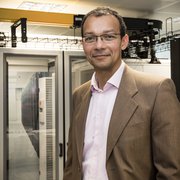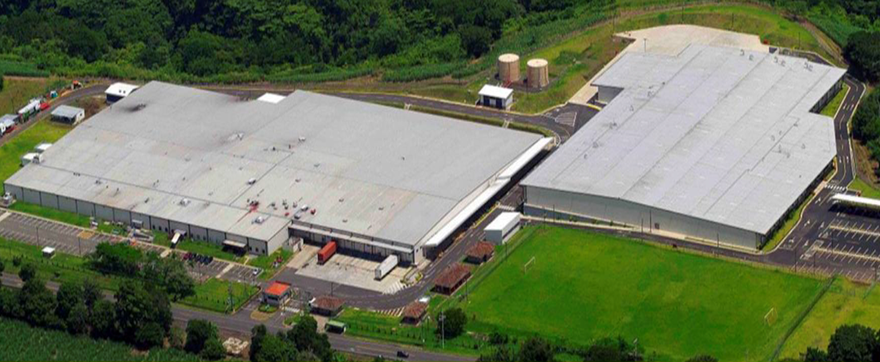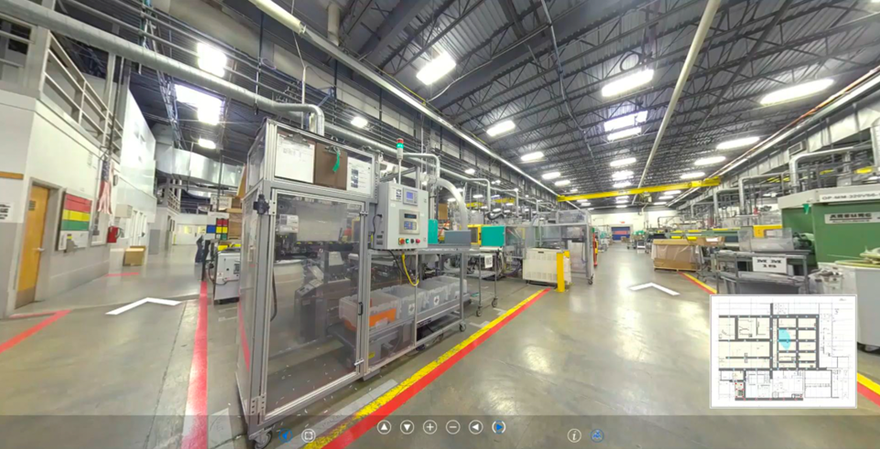If you are a regular reader of DCD’s opinion pieces, you may have read my previous musings on data center infrastructure energy reduction, that can make sizeable contributions to organizations on-site cost savings.
Taking a step back from the on-site environment, I would like to discuss sustainability benefits offered by technology manufacturers, such as Panduit, to customers and data centers to support their reporting requirements, and the increase in sustainable infrastructure in this increasingly growing sector.
Our industry continues to have increasing pressure placed on it to certify and report our sustainability contribution progress, illustrating how our efforts impact, positively or negatively, our supply-chain ecosystems.
According to Uptime Institute’s 2022 Global Data Center Survey, many data center operators are unprepared for escalating sustainability regulations. Many respondents currently report on data center power use and PUE, but fewer track critical environmental metrics.
Sixty-three percent of operators believe they will be required to publicly report environmental data in the next five years, whilst 37 percent collect and report carbon emissions data (an increase from 33 percent in 2021) and 39 percent currently report their water use (12 percent less compared to 2021). New legislation, industry standards, and pressure group requirements will oblige operators to address these gaps and establish more stringent sustainability tracking and reporting practices in the coming years.
The data center market is continuing its remarkable growth, which is seeing hyperscale investment in third-party data centers in order to maintain their strategies of fast regional deployment, as well as the general market expansion required to support new data platforms and technology, such as autonomous vehicles, industrial automation moving to Ethernet, as well as the data requirement of AI and global 5G deployment over the coming years.
Panduit is involved in a wide variety of data center infrastructure products and has a long history of research and development in copper and fiber cabling, cable conduits, cabinets and more. It is essential to work closely with industry partners to increase solutions capabilities, and for over 20 years a key development attribute has been sustainability of product components and the holistic product cycle. The industry must move towards more efficient development and manufacture, more recycling and less waste to landfill.
During the past two decades, we have collected huge amounts of documented data which has helped us better understand what we do as a business, on so many new levels. We, like many businesses, are working with industry standard organizations to hone the processes to achieve carbon neutrality. ISO 14064-1 shows how to document the data, ISO 14064-2 show how to actually implement the process and ISO 14064-3 shows how to verify.
Our manufacturing plant in Costa Rica achieved carbon neutral status in 2014 and continues to follow the ISO process. As a manufacturer of infrastructure products, we took a leaf out of our own playbook and deployed a future-ready network for Industrial Automation Control Systems (IACS), which provided the path to network development and improved network uptime and production equipment availability.
There followed the upgrade and automation of the manufacturing plants using Converged Plantwide Ethernet (CPwE). MES allowed us to implement process tracking and productivity improvements and IoT analytics feed into operational efficiency and energy conservation benefits.
Panduit Cost Rica facility
Panduit’s strategy was to reduce Greenhouse Gas (GHG) emissions from the production processes to mitigate the cause and effects of climate change. This is not simply an internal audit, it is certified by INTECO (Instituto de normas tecnicas de Costa Rica). It embraces all three of the Scope 1, direct organization factors, Scope 2, indirect factors such as energy supply, and Scope 3, indirect carried out by a third-party.
The audit ensures that all contributing factors are recorded and measured, and that Panduit has executed GHG reduction initiatives or appropriate mitigation is in place. The plant was recognized as a pioneer in CO2 reduction at the 2019 PreCOP25 International Climate Conference.
Actions we undertook to reduce carbon emissions included, implementing compressed air equipment, replacing systems that used GHG. What might appear a small switch, that produced a large GHG saving, was the upgrade to LED lighting in various areas in the facility which made 632,000KWh in energy savings, equivalent to a reduction of 23 tons of CO2.
A surprising win for the company, which is more normally associated with clean beaches, marinas, and rivers, was achieving an Ecological Blue Flag. This was awarded through Panduit’s work to reduce water usage and treatment of wastewater to a quality that makes it suitable for brown use in the facility, as well as suitable to water a local tree nursery, and also for release into a local river.
Panduit not only feeds back 22 million liters of clean water per year, but it also sponsors volunteer days where its staff clean a vast stretch of the local river. Furthermore, 20 percent of the Costa Rica site has been dedicated to reforestation, which equates to the size of two football pitches. We also work with other organizations on reforestation projects and in our on-site tree nursery we grow and donate saplings of native trees needed across Costa Rica. And of course, growing trees helps remove CO2 from the atmosphere.
The Panduit Costa Rica facility is a business and ecological success, and we have been mirroring the processes across our other eight manufacturing facilities across the globe. We believe that every organization needs to commit to reducing GHG emissions and reducing waste in general.
We set our ambitious and achievable goals some time ago and are continuing on course. A couple of examples include, to reduce Panduit’s carbon footprint by 20 percent by 2025, and to reduce our energy intensity (KWh Earned Hours) by 10 percent by 2025. We are also supportive of the circular economy and are working towards 75 percent of packaging to contain renewable/recycled material by 2025, while also striving to achieve a reduction to 10 percent waste to landfill by 2023.
Corporate sustainability requires commitment and the cooperation of many suppliers, partners, and customers as well as industry, emissions bodies, governments, and the wider community to bring about the reductions required in GHG. Companies of all shapes and sizes need to stop paying lip service to the cause and make that commitment to sustainability.
More from Panduit
-
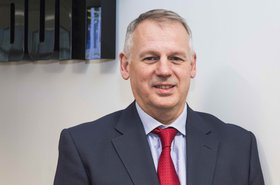
Sponsored Powering 5G in building networks safely
Delivering power – and data – efficiently, safely, and securely
-
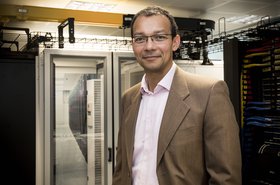
Sponsored Optimizing data center fiber infrastructure
Robust, flexible, integrated and sustainable – the fiber infrastructure needed to support today’s data center demands
-
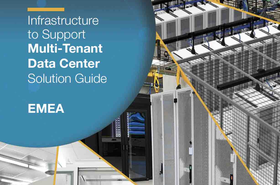
Sponsored Infrastructure that connects the world in MTDCs
Multi-tenant data centers need physical infrastructure that connects every area equally well. Panduit’s latest Solution Guide shows you how

